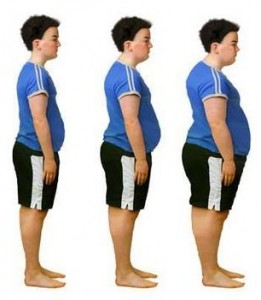 As our nation continues to struggle with an obesity epidemic and individuals work to lose weight with diet and exercises programs, a group of researchers from University of Alabama at Birmingham want to make sure we know what not to do.
As our nation continues to struggle with an obesity epidemic and individuals work to lose weight with diet and exercises programs, a group of researchers from University of Alabama at Birmingham want to make sure we know what not to do.
In an article published earlier this year in the New England Journal of Medicine, obesity researchers reviewed the evidence about losing weight to identify what we really know about the best ways to lose weight.
They identified 7 commons myths about losing weight which are not true:
1. Small changes in diet and exercise will create big, long-term weight changes.
2. Setting realistic goals for weight loss is important to prevent frustration.
3. Rapid weight-loss is less successful over the long-term than gradual weight loss.
4. Patients who want to lose weight must be “mentally ready.”
5. Physical education classes play an important role in preventing childhood obesity.
6. Breastfeeding protects babies against obesity later.
7. Sexual activity is a good way to burn calories.
The review also identified some common perceptions about losing weight that are, in fact, supported by strong evidence:
- Genetics play a role in weight loss, but that factor is not insurmountable.
- Exercise helps people maintain their weight.
- Patients lose more weight on programs that provide meals.
- Some prescription drugs help with weight loss and maintenance.
- Weight-loss surgery is an effective way to maintain long-term weight loss and reduce mortality in appropriate patients.
The study also listed some ideas about weight loss that are still not proven or disproven by the current available evidence. For example, we don’t actually know whether eating breakfast regularly aids in weight loss, or whether people who snack often are more likely to gain weight.
In general, the medical community and researchers have praised the study for providing an accurate picture of what we know – and what we don’t – about losing weight. The idea going forward is that researchers should continue to develop new evidence on the most effective methods for losing weight.


I strongly believe that the only way to reduce your belly fat in the long run is to change the lifestyle and nutrition. All other diets will fail in my mind. so i agree that diets which are targeting that will work if your mind is strong enough!
i wish you all the best!!!
Wow. That article was a great read, thank you for pointing us to it! Some things I already knew about (to me at least they were common sense), but others, like the one about small diet and exercise changes not actually creating long term weight changes, I would have never guessed.
Thanks for clarifying those myths, internet is full of them, very pleasant to find a trustworthy article.
I had weight problems, just want to point out that diet and exercises helped me.
What a great piece of information. I really like how you summarized the most important points.
You can’t go wrong with sexual activity
There are indeed, many myths about weight loss.
I actually been struggling gain muscle and losing weight until I found the renegade diet which really worked for me and a few buddies of mine.
With all the nonsense around it’s great to FINALLY see hard data and science about weight loss. But now I’ve said that I am going to be a little anecdotal and offer conjecture. Eating breakfast, I suspect, will be a very individual thing.
I rarely eat in the morning, coffee is my breakfast and I find that a bit much. The thought of eating in the morning makes me feel ill. I still managed to lose weight. Where as I’ve met people who eat in the morning and don’t seem to lose weight despite trying. Vice versa also. I get mildly irritated at those weight loss ‘guru’s’ who espouse ‘eat breakfast to lose weight’. If I eat breakfast in the morning, not only will I feel sick, I get hungrier earlier and tend to snack a lot more through the day. Sounds counter intuitive, but that’s my anecdotal experience.
If I remember correctly, I think not wanting to eat in the morning has something to do with serotonin levels not ‘kicking in’.
Thank you for clarifying some of the myths that we’ve been hearing for ages. Having correct information is like gold specifically when it’s to do with health issues.
Thank you for the useful information. This will help me (and many others, I’m sure) on their journey to a healthy body. Keep up the good work!